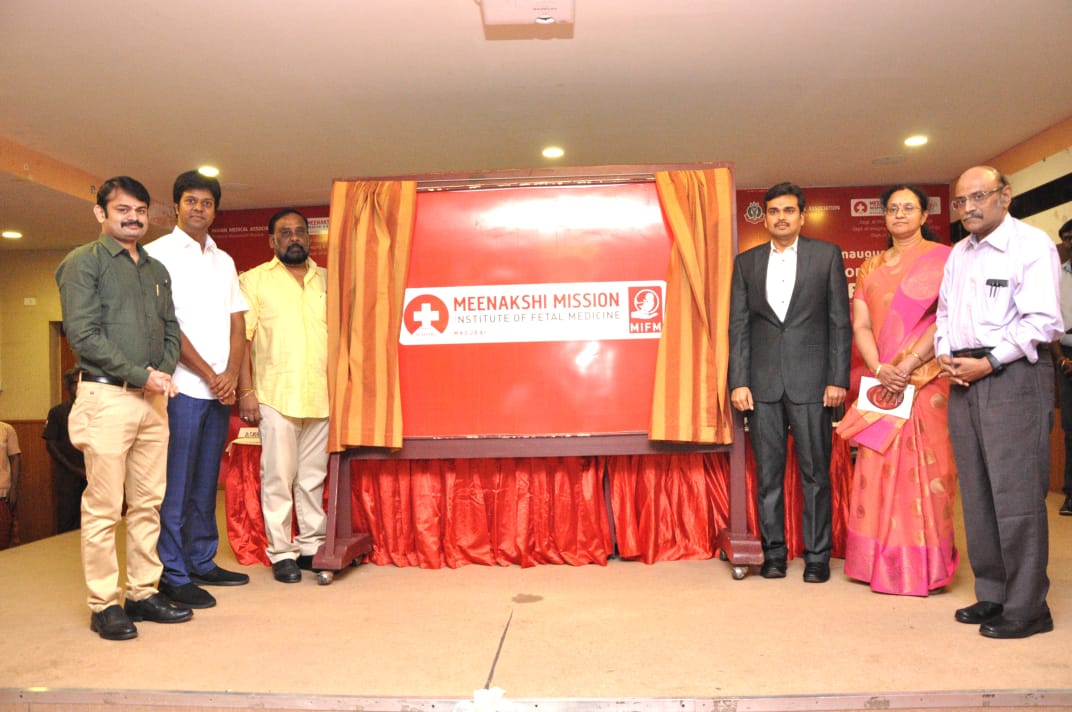- The prevalence of birth defects in India is 6-7% – this translates to about 1.7 million birth defects
- High-end prenatal care can help identify and treat rare genetic and other fetal disorders
Madurai, January 19, 2019: Meenakshi Mission Hospital & Research Centre, Madurai, opened a new department for fetal medicine to provide comprehensive medical care for fetuses using advanced technologies and equipment in imaging and genetic testing, today. The Department will also provide care and counseling for mothers.
To be run by obstetricians trained in fetal care, radiologists and geneticists, the Department of Fetal Medicine is well equipped to provide assessment of fetal growth and wellbeing and the diagnosis and management of fetal disorders and abnormalities.
Commenting about the new department, Dr. S. Gurushankar, Chairman, Meenakshi Mission Hospital, said, The prevalence of birth defects in India is 6-7% which translates to around 1.7 million birth defects every year. The common birth defects include congenital heart disease, congenital deafness, and neural tube defects. India ranks second in the world with regard to occurrence of congenital anomalies in neonates and children.
Factors such as marriages within close relatives (known as consanguineous marriages) are linked to birth defects. The rate of consanguineous marriages in North Indian states is low – from 1% to 4% whereas it is anywhere from 20-30% in the South Indian states. Babies of such marriages are at greater risk of many genetic disorders and inborn errors of metabolism. It is important that mothers undergo specific genetic mutation tests.
And, there are drug related factors too. The drugs taken regularly by mothers for medical problems like diabetes, autoimmune diseases, and epilepsy can affect the fetus to malformations.
Also, the increasing prevalence of multiple pregnancy adds to the challenge. Today, more and more couples opt for Assisted Reproductive Technology (ART) based fertility treatments. ART can increase the cases of triplets (three babies), and quadruplets (four babies). These multiple pregnancies have a very high chance of getting aborted. For a better pregnancy outcome well-equipped tertiary care centres are important.
Then comes the inherent genetic reasons that prevent babies from growing healthily. With advances in imaging and genetic testing, it is possible to diagnose and treat such health problems of the baby while it is still in the womb.
Talking about the treatments and healthcare services available at the new facility, Dr. S. Padma, Head, Department of Fetal Medicine, Meenakshi Mission Hospital and Research Centre, said, Providing comprehensive care for high-risk pregnancy and supportive neonatal intensive care is the primary objective of the department.
Dr.T.Mukuntharajan, Sr.Consultant & HOD – interventional Radiology,Screening and imaging play a crucial role in our job. We provide advanced antenatal screening to identify diseases like Downs syndrome, genetically inherited problems like thalassemia, spinal muscular atrophy and so on.
We use high resolution ultrasonography, an ultrasound based imaging technique, to pick up structural defects, neurological defects and cardiac defects.
We go for specialized tests and care for the fetuses identified as high risk. We also give competent counselling for mothers carrying fetuses with the potential for genetic disorders and malformations. This helps the mothers to understand and to make informed decisions on the medical options.
It is to be noted that Meenakshi Mission Hospital and Research Centre has recently performed intrauterine transfusions of blood successfully and has given a new lease of life for fetuses with anaemia.
Following the inaugural event, the hospital also organized a one-day Continuing Medical Education (CME) program on fetal medicine, in association with Indian Medical Association, Madurai.
The CME attracted about 100 doctors from South Tamil Nadu. It had two sessions. The first session was on First Trimester Problems. This session was chaired by Prof. Dr. P. Meenambal, Retd. Prof of Obstetrics and Gynaecology, Government Rajaji Hospital, Madurai, and Dr Savithri Ramesh, Senior Consultant, Department of O&G, Dr. Harley Rram Hospital, Madurai.
The second session was on First Trimester Screening. It was chaired by Prof. Dr. S. Sumathy, HOD, Department of Radiology, Government Rajaji Hospital, Madurai, and Dr. N. Karunakaran, Senior Consultant, Department of Radiology, Meenakshi Mission Hospital.
Presentations were made by eminent doctors and medical experts on topics that included: Sonoembryology, Medical Management of Ectopic Pregnancy, Surgical Management of Ectopic Pregnancy, Scar Ectopic Pregnancy, First Trimester Anomalies, Genetics of First Trimester Anomalies, and First Trimester Invasive Procedures.




